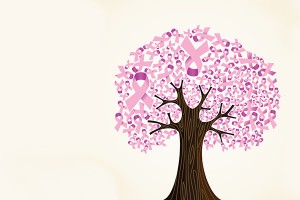Interesting new research has looked at the long-term relationship between breast cancer and the use of fertility drugs. The study focused on clomiphene citrate (clomid) used to stimulate ovulation and gonadotophins (FSH, LH, hCG) used to promote and control egg production in IVF procedures.
Follow up data was collected for an average of 30 years until 2010, for almost 10,000 infertile women diagnosed between 1966-1988. The average age of women was 30yrs at infertility evaluation and 53yrs at breast cancer diagnosis.
The good news is that when compared to women who did not use fertility drugs, there were no overall increased risks of breast cancer with the use of clomid or gonadotrophins, including combined/sequential use. This is most likely due to the breadth of parameters that need to be considered in a long-term follow up study. When analysed more closely however, trends were observed;
- The risk of developing breast cancer was significantly increased for women who were 35 years and older using clomid for the first time.
- Using clomid for 12 or more cycles showed the highest correlation to breast cancer (age unrelated), particularly invasive cancers.
- When a high cumulative dose (2251mg or more) was combined with a high number of cycles (12 or more) the risk was also elevated.
It is worth noting that this type of exposure far exceeds current practices.
A slight increase in risk was observed between gonadotrophin use and invasive breast cancers, but this became significant if women remained infertile and never had children. This finding most likely reflects the resistant nature of a subset of infertility inherently linked with higher cancer risks.
Brinton et al 2014 Cancer Epidemiol Biomarkers Prev; 23(4); 584-93 
